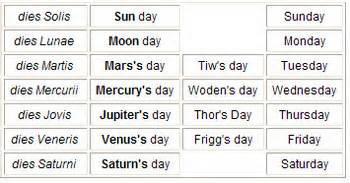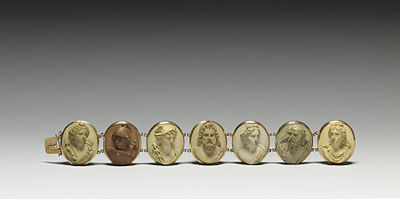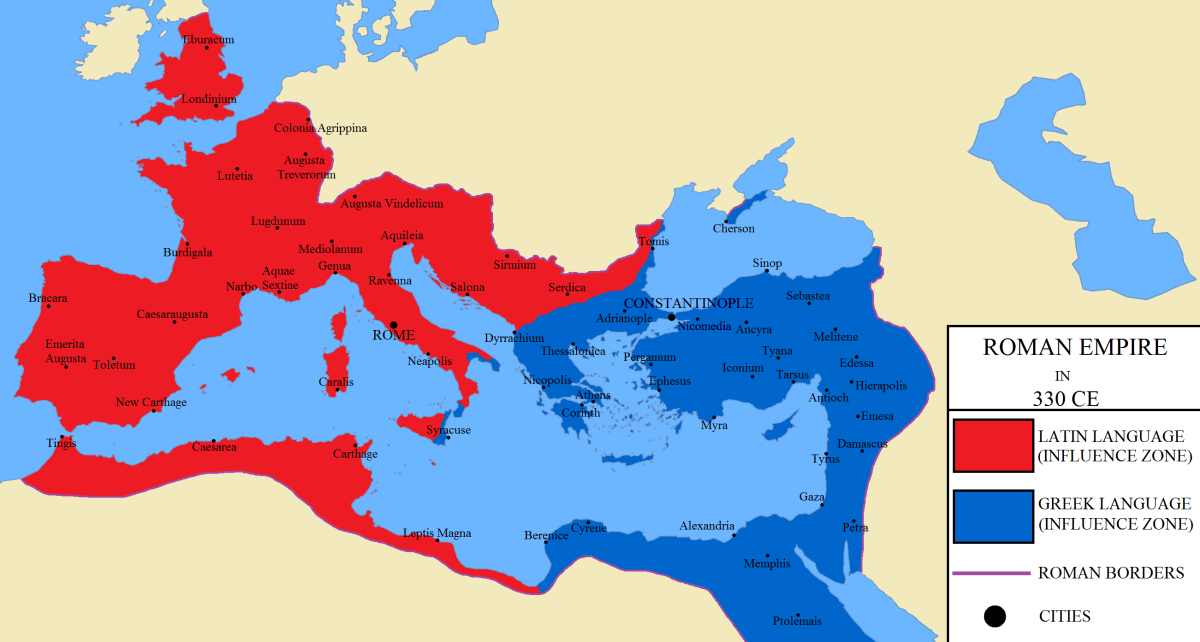Brief History of The Week


The week is one of our most senior institutions and one of the oldest human-made constructs of time. We have not always had a seven-day week. Only recently have humans locked time into this format. The week is not, after all a divine creation. It is a division arising from convenience and a need to provide regularity within the framework of days and months. It is the result of a human desire to keep precise control of time.
These are all functional goals. Yet, there have been religious weeks, market weeks, astrological weeks and working weeks. Our well-known and accepted seven-day week did not emerge until around the 3rd century. It took the name of the known planets of the time, but, for some reason or other, altered the traditional planetary order.
The names we now apply to the days of the week are a combination of Graeco-Roman and Anglo-Saxon or Northern terms. These refer to and symbolize ancient Gods and planets. Thus, we have Monday and Sunday, named after the Moon and the Sun, respectively, Tuesday, Wednesday and Thursday, bearing the names of Anglo-Saxon or Northern Gods and Saturday, a totally Roman conception. In this time scheme, the ancients did not differentiate the Sun and the Moon (actually stars), from the other planets, Mars, Mercury, Jupiter, Venus and Saturn. Yet, the peculiarity lies not in the names, nor in their misconception, but in the order. Originally, the arrangement of the days was based on orbital patterns.
Planets, the Greeks and the Romans
Hellenic and Egyptian astronomers placed the known planets in the following order: Saturn, Jupiter, Mars, Sun, Venus, Mercury and the Moon. During their era of domination, the Romans altered the order to fit what we have now. Dio Cassius noted this new arrangement in his histories and the poet, Tibullus, commented upon it. The artwork from the period also recorded this change, for example, the Gods and their associated planets appear in this order in a wall fresco in Pompeii.
This is not to say the Romans invented the week. It was not, per se, a Roman invention. The Italians and Etruscans had an eight-day week and various other forms of dividing time were in existence throughout the world. In Africa, Mexico, South and Central America, China, Japan and the Mid-East a system of telling time included the division into what is now called a week. The Celts worked within a system in which the days stood out singly or clumped together in batches of three, five and 10.
Some historians believe the Romans owe their “invention” to the Babylonians who also used a planetary system. However, the astrologically based Graeco-Roman created the form that was most widely adopted, becoming the best-known and accepted form of ordering time. Eventually, the idea of a seven-day week named after the planets named after Gods had spread throughout the Roman Empire. The Christians abetted the process further.
The Problem with Paganism
Adopting the pagan week has not come without issues. The Quakers, to avoid any taint of paganism, gave each day a number. In this system, Sunday becomes First Day and Sunday School is called First Day School. Throughout history, people have experimented - creating a week reflecting no religious denomination. During the French Revolution, an attempt was made to implement a 10-day week or Decade, After the Russian Revolution, first a 10-day and then a five-day week was favoured. The first effort lasted from 1793 to 1799. These early experiments are matched by the objections made by the scientific community. The seven-day week is disdained because neither the months nor the year can be divided into seven-day periods.
The Order of the Days
Within the confines of this seven-day expression of time one question remains: Which day comes first? It actually depends upon your religion or culture. To the Jews, Sunday marks the start of the week, while, to the Christians, it is Monday and, to the Moslems, Saturday. In all systems, the day before is a Holy Day. Thus, according to each religious group, Saturday, Sunday or Friday is considered a Holy Day. The official international standard under ISO 8601 declares Monday to be the start of the week. Many calendars in North America, including those by insurance companies and banks ignore this and put Sunday first.
What about the Weekend?
In 1878, with the Industrial Revolution a fact, the first reference was made to the weekend or week end. According to the government, Sunday was the week’s end. At this time, Saturday was not included as a part of the weekend. Most people worked on that day. Working class individuals and shopkeepers had Sunday, and only Sunday completely off from work. Sometimes Saturday was granted as a half-day off – providing the work was made up during the rest of the week.
Conclusion
In the past, there have been five-day weeks, market weeks, 20-day weeks and 10-day weeks. There are still market weeks, and religious weeks, but essentially, the predominant week is the seven-day week. This is the one we are all familiar with - the week we have grown to both love and hate.








